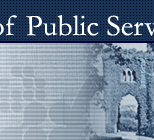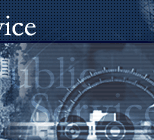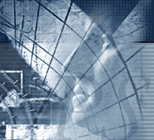|
What did I get out of Wilton Park?
I think before this week started I expected the discourse to
be on somewhat the same level as I experienced at St. Albans
last summer. That is, to be obviously highly political and
polemic. Interestingly enough, while clearly things were very
political, the experience was very different than the one that
I had last summer. I would imagine this was in large part due
to the international perspectives of the participants. There
was a range of opinion and thought that was far more varied
than the broadest spectrum that could be assembled just in the
United States.
To be fair, there was a large proportion of people holding
anti-American sentiment, but I found that it was limited in
scope, in most cases, to only the Bush administration. Usually
the Europeans seemed very fond of the American people, as long
as we weren’t verbalizing our support of Bush. I found myself
in a unique position by being probably the lone individual at
the conference that supports our President. It makes one
wonder, was the collection of individuals just that overtly
liberal? Or is the rest of the world really that disgusted
with our President? If I am to believe statistics and polls I
know that over half of Americans support our leader. How can
the rest of the world have such a disproportionate amount of
displeas ure? I guess for a final analysis of this however, I
would have to meet a wider variety of Europeans, because it is
possible that this collection was just further to the left on
the political spectrum than the rest of Europe.
Another very interesting lesson I learned was the way that
many Europeans seem to think of American culture as a
“Conquering” one. It seems to be a common enough sentiment to
many of these Europeans that we are “Mcdonaldizing” the world
if you will. Hearing the Europeans talk about the effects of
American culture, I could not but help remembering Marx’s
quote in his infamous manifesto about the weapons of the
bourgeoisie being not ones with gun powder, but ones of a
commercial variety. It apparently seems that while they might
not admit it, this is how many of the Europeans felt. It would
have been even more intriguing if more of the French had been
present because it seems that of all European countries they
have the strongest Anti-American culture feelings, having
actual laws requiring at least 60% of French media to be
French made. It does seem a little ridiculous to me, to
mandate the origin of your nation’s media. However I can now
understand, to some degree, why the European cultures feel
threatened. They have two thousand years more of history than
us Americans, yet it seems like our relatively newborn culture
is spreading across the entire globe, wiping out in some
places the much older and richer culture. So while before I
went to the conference, I blindly subscribed to the ignorant
American belief that all other cultures adored our own, and
longed to assimilate into it, after a week with close exposure
to many Europeans I see that understandably they are very
proud of their culture and don’t wish to lose it to an
overbearing American monolith.
On a completely different note but also interesting was what I
learned about the UK’s current identity crises. I did not
realize the pressures the UK felt in trying to be the bridge
between Continental Europe and the US. In the next few decades
the UK is struggling with deciding whether or not to grow
closer to the American perspective, or closer to the European
Union. We spent much time discussing this question. Some of
the speakers suggested that this is a false problem, in that t
he UK does not have to make a decision, they could continue to
ride the fence. However I don’t agree with this assertion. I
believe that international relations are becoming increasingly
polemic, and just like with most things in the world, the UK
will be forced to choose which side they will go to. In saying
this, I am by no means saying this growing divide is a good
thing. I am merely being practical about the problem. But then
again, the entire point of this conference was to bridge the
“atlantic divide,” so cheers to our generation and let’s hope
we truly can do that.
It is my belief that one of the fundamental causes for this
divide is simply one of perception. Both sides of the Atlantic
have a skewed view of the other. To start with the Europeans,
they seem to view America as this conquering super power who
seeks to remake the entire world in it’s image. Ill grant that
I understand why some people are led to think this, but truly
I think it is clear that often times, the US does have noble
goals in mind. As long as Europe thinks that America always
has empire building in mind, they will never be able to get
past that and truly trust our decisions. It is true as the
only remaining superpower, there are leadership decisions that
America must make, and if Europe forever perceives these
decisions to be selfishly driven they will never be able to
trust our choices. Equally at fault are us Americans on the
other side of the pond. I think as a whole we have a hard time
seeing Europe as little more than a collection of really old
countries that are out of touch with the new World order. I
believe Americans generally perceive Europe to be whiny
obstructionists that never want anything to change in the
world. This is a very unfair picture to have as the Europeans
but one that I think is deeply ingrained. Just as Europe wont
be able to truly trust America as long as they view us as they
do, America will never be willing to share much responsibility
with the Europeans as long as we think that they are
interested in no new change or improvement. This is a vicious
positive feedback loop that only makes itself worse. Because
the longer America thinks of Europe in this way, the more they
will refrain from sharing power, and the less power that
America shares, the more Europe thinks of us as the conquering
monolith. One hopes that as our new generation will have far
more contact with their counterparts across the Atlantic than
any previous generation, we will be able to get rid of these
cultural stereotypes.
Another more casual observation I had was the caliber of the
British MP’s compared to our house representatives. After our
meeting with Ben Bradshaw, the deputy Prime Minister of the
Labour party, and a few other MP’s and Lord Mcnally, I am
thoroughly convinced that when it comes to the game of
politics, and the ability to debate real issues, our
politicians pale in comparison to theirs. Their ability to
articulate their views and beliefs went far beyond the most
able speakers in the American congress. I don’t believe that
this necessarily means they are more capable of running the
country, but surely I would not ever want our politicians to
have to face up to those of Britain in any sort of debate, or
our American politicians would be quite embarrassed.
One final observation comes on the issue of the youth of our
respective continents. Many times throughout the week the
question was posed, are the younger generations of our
countries really all that different anymore? We watch the same
MTV, eat the same McDonald’s, and while our clothes may have
different names, finding a difference between Abercrombie and
Next is not an easy thing. If on a shallow level our two
youths seem so very alike, how will there be any real gap to
bridge in the coming decades? To that question I would say
that our cultural differences are far deeper than the shows we
watch or the clothes we eat. While finding kinship with a peer
from Germany, or Poland or anywhere comes easily, truly
understanding the worldview of said peer is much harder. It
was an amazing thing to watch all the students gather together
at night around the bar discussing almost every imaginable
issue, but I would posit that deep down we were aware of a
cultural gap between us. I could tell simply from the
questions I had to field like, why do people want to own guns
in your country? Something that seems like an unshakeable
right to me seems a major oddity to one of my European
brethren. By pointing these things out I am by no means
suggesting that these differences make it impossible for us to
relate well to one another, I am simply saying that it is
impractical to ignore that there are large cultural
differences between our people, and this is what drives our
world. We must try not to make it seem that since we all
appear so similar nowada ys, that inside we are a monoculture,
if we make this mistake then we will never really gain the
understanding that we need to truly live well together.
To try and make a summation of what I have learned this week
is a harder task than one might think. I don’t think I learned
one specific overarching thing to take home, I think what I
learned could be more accurately described as a new way of
thinking. This trip was successful in giving me a whole new
perspective on how my country is perceived and acts across the
rest of the world. I could honestly tell someone that the best
place to start bridging any sort of gap is by trying to
understand the person opposite you better. No speaker, article
or program has taught me as much about my European
counterparts as has simply spending time with them. I have
total faith that this amazing collection of individuals are
well on their way t o doing amazing things in this world. As
to whether or not our generation will succeed in overcoming
the struggles our elders couldn’t, only posterity can tell.
But if any guess can be made by judging the people present at
Wiston House this week, I would say that we have at least a
fighting chance.
|




